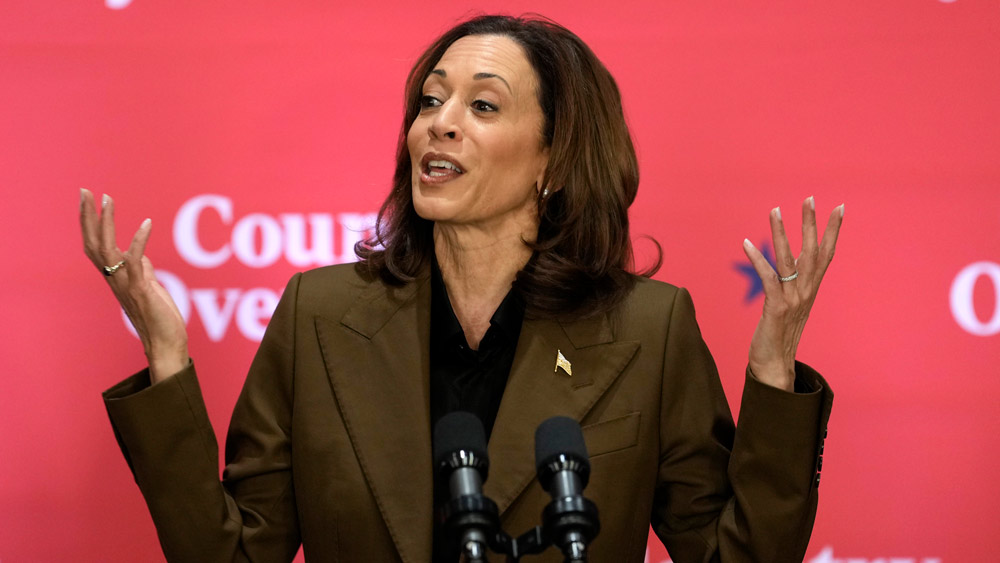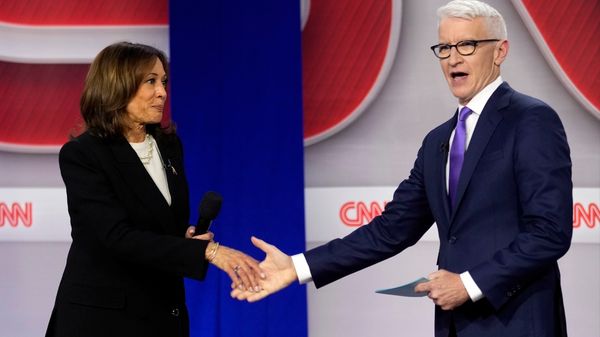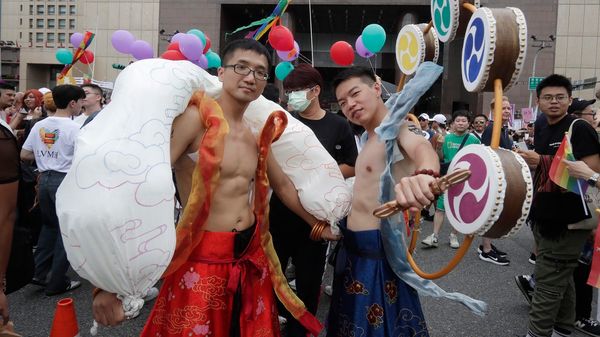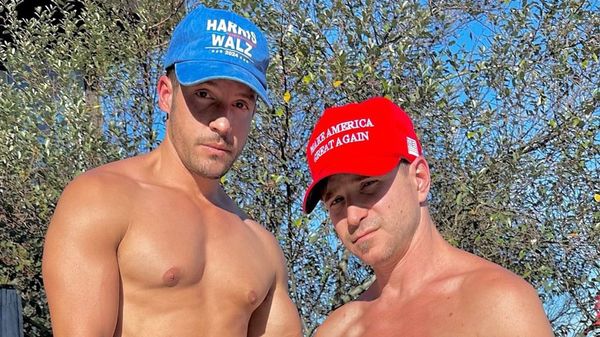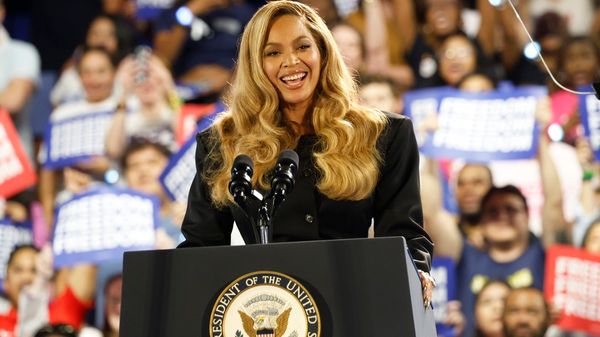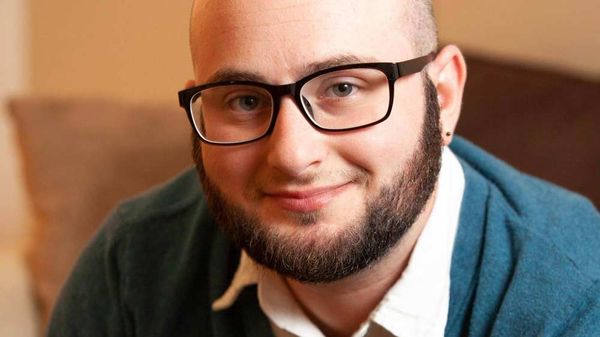November 16, 2007
A funny thing happened at the polls
Michael Wood READ TIME: 6 MIN.
This past election cycle saw the campaigns of four of five viable, qualified openly gay candidates for municipal office go down to defeat: In Salem's City Council race, it was Mickey Northcutt, who ran for an open seat with the endorsement of the popular retiring incumbent. In Worcester, after strongly finishing ahead of two incumbent city councilors in the preliminary election, and raking in a host of union endorsements, Grace Ross finished two spots out of the running for one of six at-large council seats. In Boston's City Council District 9, Tim Schofield failed to make it past the preliminary despite name recognition, money and organization. And in Brockton, Jass Stewart , an organized, charismatic campaigner who put incumbent Mayor James Harrington on the ropes in the September preliminary when he finished just 107 votes behind him, fell short by more than 600 votes in the general. (Two other openly gay candidates, Somerville mayoral challenger Suzanne Bremer and Boston District 3 City Council challenger Michael Cote, both ran small, long-shot campaigns against popular incumbents; their crushing defeats were not unexpected.) The only bright spot in this pack was Tim Purington, a political newcomer who won a seat on the Holyoke City Council by ousting Ward 4 incumbent John Lecca.
Aside from Purington, is the failure of these otherwise qualified candidates to break through a gay thing, even in progressive minded Massachusetts?
It's easy to point to Purington and openly gay incumbents like New Bedford City Councilor Joe DeMedeiros, Cambridge City Councilors Ken Reeves and Denise Simmons and Attleboro Mayor Kevin Dumas, all of whom were easily re-elected this year, and say no. And of course, every campaign has unique dynamics that have nothing to do with a candidate's sexual orientation. For instance, Ross, a member of the Green-Rainbow Party, got sidetracked by questions about the positions she and the party took on denying the genocide in Darfur and for criticizing Israel's bombing of Lebanon as behavior similar to that of Columbine High School killers.
But it's a safe bet that being openly gay was more hurt than help for the candidates.
"I can't speak to other campaigns but in my campaign the gay thing was huge," said Purington, who characterized Holyoke as a predominantly conservative, Catholic city. "There was a pretty significant whispering campaign that went on that I heard repeatedly." He added that after the preliminary, the news that he is married to a man caused him to lose out on the endorsement of a former opponent in the race. Purington was concerned enough about the whispering, much of which took place on a local political blog -- where his campaign volunteers were characterized as "well-dressed men from Northampton" -- to seek out the advice of the Victory Fund, a national organization dedicated to helping openly LGBT candidates get elected. The organization wound up endorsing Purington's campaign. Purington, who directs HIV/AIDS programs for Tapestry Health, said that what put him over the top was his aggressive grassroots campaign, waged with the help of the group Neighbor to Neighbor. "I just spent months and months and months knocking on doors and letting people get to know me." At the end of the day, Purington doesn't think being openly gay impacted his campaign significantly. "I imagine that I would have lost a couple votes about it, but I think clearly people saw through my opponent," said.
Having won his race, Purington has an easier time making that call than say, Stewart, who also had to contend with some anti-gay antics during the general election campaign, when it was reported that a Harrington aide was campaigning for his boss with a wedding photo of Stewart and spouse, asking voters if that's who they wanted representing their city. After all, even "a couple votes" still means the difference between winning and losing. Stewart said he's "optimistic" that anti-gay sentiment didn't swing his election. But he can't help but wonder. "I don't think they would have done that unless they felt they could build some momentum ," he said of the Harrington camp's anti-gay campaigning. "Clearly they believed it was a factor and looking at the results, maybe it was." Stewart observes that perhaps the fact that he is black and openly gay -- Brockton has never had a mayor who's been either of those things, never mind both of them -- "may be in some cases too much for people to get beyond the personal and focus on the issues. But he adds, "I'm optimistic that that's a small number of individuals."
Denis Dison, Victory Fund's vice president of communications, notes that it's hard for any candidate to take out an incumbent. Unseating a member of Congress, he said, costs twice as much money as campaigning for an open congressional seat. "The effort and the money that it takes to win as a non-incumbent, it's always an uphill battle, a much steeper hill and so there's that to begin with." Tack on something else that voters need to adjust to, like being gay, said Dison "and you are making it even harder still."
But what about folks like Schofield, who campaigned for an open seat? He didn't contend with any overtly anti-gay campaign tactics in his race for the Allston-Brighton city council seat. But a Boston Phoenix article about the race quoted an unnamed observer of the local scene who speculated that an all-important bloc of Russian voters at the Wallingford Road senior housing complex would never break for a gay man. Indeed, the Russians went for the Greg Glennon, the most socially conservative candidate, in the preliminary, helping him edge out Schofield for second place (Glennon lost the general to the more gay-friendly Mark Ciommo).
Schofield's campaign also displayed a whiff of what Dison said is another common problem for openly gay candidates: The misperception that they are single-issue -- as in "gay issue"-- candidates. In a common scenario that Dison calls "unfortunate," he points to a previous Bay Windows story about Schofield's race in which a lesbian supporter of one of his rivals basically stated that because the city council doesn't vote on gay issues she didn't necessarily see the need for a gay councilor. "Even people who are gay still view gay candidates ... as single issue candidates," said Dison. "And if that's not their issue they look beyond that person."
Even harder to quantify is the number of voters who tell pollsters and news reporters that they aren't bothered by a candidate's sexual orientation, but change their minds when it's time to actually pull the lever for the gay candidate. Dison cites Ed Oakley's mayoral race in Dallas back in June. Though the race was officially nonpartisan, Oakley, a three-term Dallas city councilor, was a registered Democrat running in a heavily Democratic city. His opponent Tom Leppert was a political newcomer and a Republican. One week before the election, a Dallas Morning News poll had the race to close to call. Oakley was getting national attention as the likely first openly gay mayor of Dallas. On election day Oakley lost by 18 percentage points. Was it the gay thing? "It's hard to say for sure," said Dison. "But there had to be some of that."
But progressive political consultant Dan Cohen, who has worked for his share of openly gay candidates, most recently Northcutt in Salem, is having none of this "gay thing"-as-campaign-killer theory. He offers up a host reasons why this year's crop of openly gay non-incumbents didn't fare so well, the main one being that it was an off-election year thus, "municipal election turnout was abysmal everywhere." And when you're dealing with a low turnout, said Cohen, "you're dealing with an electorate that is going to be far more traditional and often times a lot more conservative."
So it's not just the gay candidates, who tend toward the progressive end of the political spectrum, that suffer, it's all of the progressives. Indeed, recently ousted Boston City Councilor Felix Arroyo, the council's progressive standard-bearer, may have fallen victim to the lowest turnout the city has ever seen. Along those same lines, it's difficult to get voters to the polls for municipal elections because there's generally nothing really compelling at stake, said Cohen, particularly for progressives. "Generally, [progressive candidates] do better at state elections because the things that are stake are far better understood by the electorate."
Cohen concedes that "when you're dealing with any kind of minority candidate you're going to run the risk of having people make that voting booth switch. It's not something that you can account for," he said. "You still have to run the campaign the same way."
Overall, Cohen said he views the gay electoral failures as a progressive issue more than a gay issue. And the losses aren't necessarily a bad sign.
"I think what happens is we skew the actual history in our heads a little bit," said Cohen. "We remember very well the Carl Sciortinos and we forget very quickly the many, many progressives who lose." The reality, said Cohen, is that the progressive community has gotten more organized in a short period of time. He points to Purington's victory as evidence of progress, as well as Rhode Island's Frank Ferri, an openly gay candidate Cohen guided to a landslide Democratic primary victory last month.
"Progressives have always lost more than we've won and we still are," said Cohen. "We're doing better. We're fielding more strong candidates. We're winning more."
Michael Wood is a contributor and Editorial Assistant for EDGE Publications.
